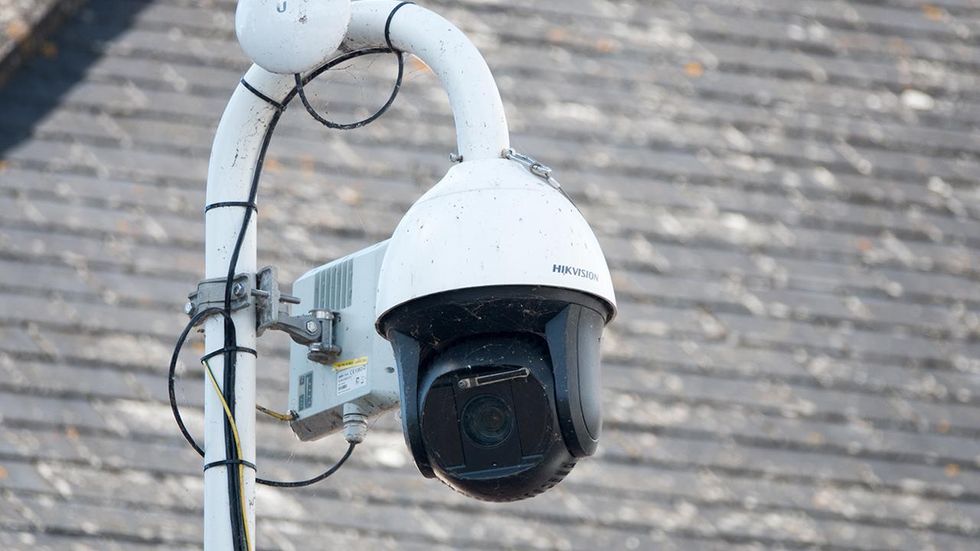
Photo illustration of surveillance camera. (Photo by Matt Cardy/Getty Images)

Google has patents for smart home devices that can eavesdrop on everything going on in our homes, all under the guise of sending us targeted ads for our "convenience."
What we’ve already given up in terms of privacy is nothing compared to what’s coming, PJ Media reported.
The patents, although not a guarantee the products will be developed, reveal that Google wants “sensors and cameras mounted in every room to follow us and analyze what we’re doing throughout our home,” the report states.
The cameras are so sensitive they can, for example, identify the image of a movie star on a resident’s t-shirt. That image can then be matched to the resident's internet browsing history. In turn, Google can send them an ad for a new movie with their favorite star.
All of the information can be analyzed and reported at Google's whim.
Patent No. 10,114,351, states the company can "use smart-devices to monitor activities within a smart-device environment, report on these activities, and/or provide smart-device control based upon these activities.”
The patent also outlines how the internet giant wants to track people throughout the home, observing them in every room:
"By way of example, the high-power processor 20 and the low-power processor 22 may detect when a location (e.g., a house or room) is occupied (i.e., includes a presence of a human), up to and including whether it is occupied by a specific person or is occupied by a specific number of people (e.g., relative to one or more thresholds). In one embodiment, this detection can occur, e.g., by analyzing microphone signals, detecting user movements (e.g., in front of a device), detecting openings and closings of doors or garage doors, detecting wireless signals, detecting an internet protocol (IP) address of a received signal, detecting operation of one or more devices within a time window, or the like. Moreover, the high-power processor 20 and the low-power processor 22 may include image recognition technology to identify particular occupants or objects."
The patent was awarded to one of Google’s development teams associated with the Nest thermostat.
“While there are many good uses for adding sensors for home automation, the danger comes when they are being monitored and used by outside companies with an insatiable desire to know everything about us,” PJ Media noted.
The Atlantic explains it further:
"A second patent proposes a smart-home system that would help run the household, using sensors and cameras to restrict kids’ behavior. Parents could program a device to note if it overhears 'foul language' from children, scan internet usage for mature or objectionable content, or use 'occupancy sensors' to determine if certain areas of the house are accessed while they’re gone— for example, the liquor cabinet. The system could be set to 'change a smart lighting system color to red and flash the lights' as a warning to children or even power off lights and devices if they’re grounded."
The Atlantic also noted that Google can, even without cameras, use speakers to "recognize the noises you make as you move around the house."
"The auditory inferences are startling: Google’s smart-home system can infer if a household member is working from an audio signature of keyboard clicking, a desk chair moving, and/or papers shuffling," the Atlantic states. "Google can make inferences on your mood based on whether it hears raised voices or crying, on when you’re in the kitchen based on the sound of the fridge door opening, on your dental hygiene based on 'the sounds and/or images of teeth brushing.'"
The short answer is no.
There are virtually no laws nor oversight to stop tech giants from peering deeply into our lives and then selling whatever they can off to the highest bidders.